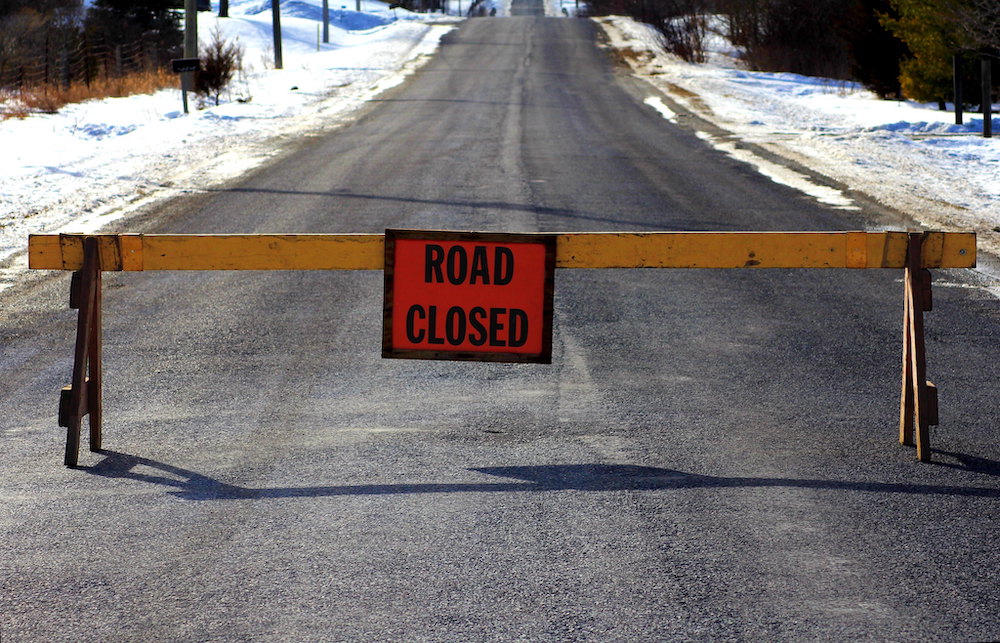
- Details
- By Kaili Berg
The Lac du Flambeau Band of Lake Superior Chippewa will reinstate nighttime barricades on multiple roads within their reservation, reigniting tensions with the town of Lac du Flambeau.
Starting Jan. 16, roads will be barricaded nightly from 10 p.m. to 6 a.m., a move the tribe says is necessary due to the town's failure to pay for expired easements on tribal land.
The conflict centers around easements granted in the 1960s, allowing roads to be constructed across reservation land. These easements expired in 2011 and 2014, yet the roads have continued to be used without compensation to the tribe.
“The reservation back in the 1960s allowed easements,” Araia Breedlove, the tribe’s public relations director, said in an interview with Milwaukee radio station 620WTMJ. “Title insurance companies permitted easements for this right of way on these roads. These rights expired in 2011 and 2014. So for 10-11 years, homeowners have been traveling on unpaid restricted access roads. We’ve been trying to negotiate with the town of Lac du Flambeau to figure out a way to get compensation for these tribal roads.”
Last February, the tribe said the town and its residents would no longer be eligible for road access permits without compensating the tribe for past trespass damages. The tribe set damages at $9.65 million for the unauthorized use of roads known collectively as “Four Roads.”
In a letter to the town in October, Lac du Flambeau Tribal President John Johnson Sr. set a Jan. 16, 2025 deadline to pay outstanding fees, warning that failure to do so would result in restricted access over the four roads.
Concrete barriers have since been placed along the sides of the disputed roads, causing issues among residents who rely on these routes to access their homes.
The town has paid more than $600,000 to the tribe to maintain access to the four roads, depleting its entire roads budget. An August payment of $50,000 for access permits expired on Sept. 12. Residents can purchase temporary access permits at an annual fee of 1.5% of the state-assessed fair market value of their homes.
The dispute has garnered attention from state and federal representatives. In December 2023, the town announced plans to seek assistance from state and federal representatives to resolve the road easement issues, saying the matter escalated beyond a local issue.
The tribe says it remains open to negotiations, suggesting alternative solutions such as land reclamation or adjustments to water rights if monetary payments are not feasible.
“We’re hoping that the payment plan continues on,” Breedlove told 620WTMJ. “Or we can come to a different negotiation. There are a lot of options that we can bring to the table.”
The town of Lac du Flambeau has commented on the renewed barricade plan or its position.
The barricades, according to the tribe, are not meant to inconvenience residents unnecessarily but to shed light on the importance of resolving the conflict and ensuring proper compensation for the use of tribal land.
More Stories Like This
Navajo Resources and Development Committee Issues Notice on Livestock Inspection RequirementsAmerican Prairie, Tribal Coalition Files Protest Over Rescinded Grazing Rights
Northern Cheyenne Push Back Against Trump Administration’s Effort to Alter Little Bighorn History
Florida Man Sentenced for Falsely Selling Imported Jewelry as Pueblo Indian–Made
Navajo Nation Declares State Of Emergency As Winter Storm Threatens Region
Help us defend tribal sovereignty.
At Native News Online, our mission is rooted in telling the stories that strengthen sovereignty and uplift Indigenous voices — not just at year’s end, but every single day.
Because of your generosity last year, we were able to keep our reporters on the ground in tribal communities, at national gatherings and in the halls of Congress — covering the issues that matter most to Indian Country: sovereignty, culture, education, health and economic opportunity.
That support sustained us through a tough year in 2025. Now, as we look to the year ahead, we need your help right now to ensure warrior journalism remains strong — reporting that defends tribal sovereignty, amplifies Native truth, and holds power accountable.
 The stakes couldn't be higher. Your support keeps Native voices heard, Native stories told and Native sovereignty defended.
The stakes couldn't be higher. Your support keeps Native voices heard, Native stories told and Native sovereignty defended.
Stand with Warrior Journalism today.
Levi Rickert (Potawatomi), Editor & Publisher

